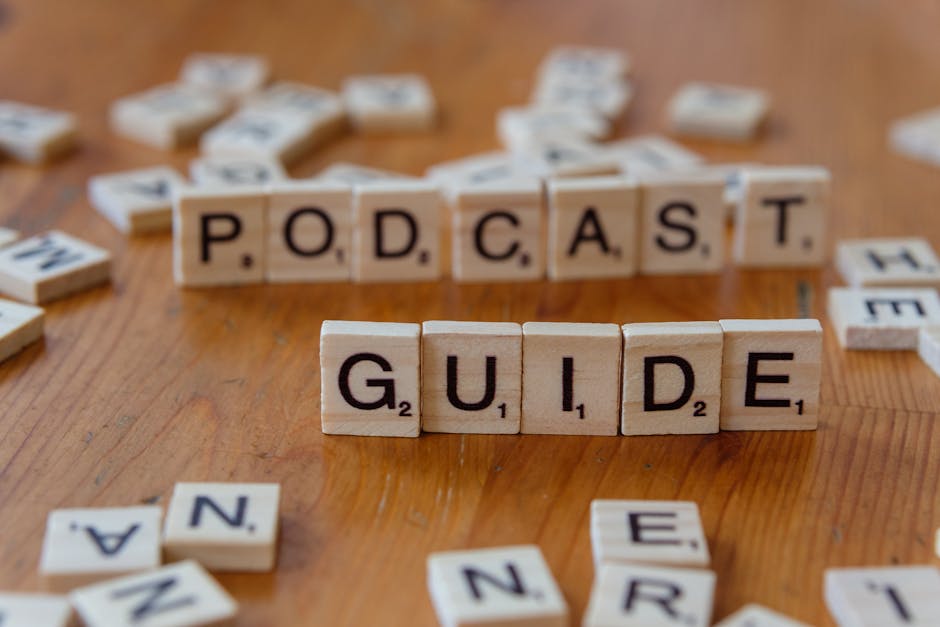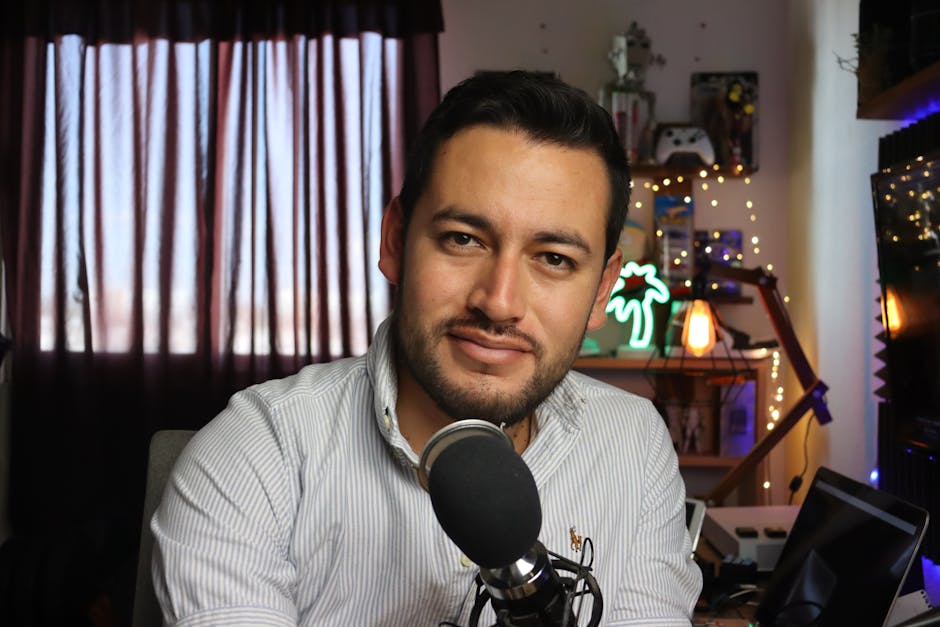My Guide to Understanding Podcast Affiliate Marketing Strategies.
Welcome, fellow creators and curious minds, to my personal journey and insights into a powerful, yet often misunderstood, realm of podcast monetization: affiliate marketing. The landscape of podcasting is ever-evolving, and while passion drives much of what we do, sustaining a show often requires strategic thinking about revenue. This guide isn’t just a generic overview; it’s a deep dive into my understanding of podcast affiliate marketing strategies, born from experience, observation, and a commitment to authenticity. My goal here is to demystify the process, offer a clear roadmap, and empower you to integrate these strategies effectively, ethically, and profitably into your own audio content.
For many podcasters, the idea of affiliate marketing can feel like walking a tightrope between genuine recommendation and commercialization. My approach focuses on how to navigate this delicate balance, ensuring that every affiliate mention enhances, rather than detracts from, your listener’s experience. We’ll explore how to identify the right partnerships, integrate them seamlessly, and measure their impact, all while keeping your audience’s trust at the forefront. Let’s embark on this journey to truly understand and master podcast affiliate marketing strategies together.
Deconstructing the Core: What Podcast Affiliate Marketing Truly Means for Creators
Before diving into specific tactics, it’s crucial to establish a foundational understanding of what podcast affiliate marketing truly represents. In my view, it’s far more nuanced than simply “selling stuff.” At its heart, it’s about leveraging your influence and the trust you’ve built with your audience to recommend products or services you genuinely believe in. When a listener makes a purchase through your unique affiliate link or code, you earn a commission. This model differs significantly from traditional podcast sponsorships, where you’re typically paid a flat fee for an ad read, regardless of sales performance.
The beauty of affiliate marketing for podcasters lies in its performance-based nature and its potential for passive income. Unlike a fixed sponsorship deal that expires, a well-placed affiliate recommendation for an evergreen product can continue to generate revenue long after the episode airs. However, this also means your success is directly tied to the relevance and authenticity of your recommendations. My guide emphasizes that understanding this core principle – that your credibility is your most valuable asset – is the starting point for any effective strategy.
My Framework for Identifying High-Impact Affiliate Partnerships
One of the most critical steps in my guide to understanding podcast affiliate marketing strategies is learning how to select the *right* partners. This isn’t a numbers game; it’s a strategic alignment of values, audience needs, and product quality. My framework for identifying high-impact affiliate partnerships revolves around three key pillars: Audience Relevance, Personal Vetting, and Brand Alignment.
Matching Products to Your Listener’s World
First, consider your audience. What are their interests, pain points, and aspirations? A successful affiliate product isn’t just something you like; it’s something your listeners genuinely need or desire. If your podcast is about sustainable living, recommending eco-friendly products makes sense. If it’s about productivity, tools that enhance efficiency are a natural fit. Don’t force a square peg into a round hole; your audience will see right through it. Think about the problems your listeners face and how a particular product or service could offer a genuine solution.
The Power of Personal Experience: Test and Trust
My second pillar is non-negotiable: personal vetting. I will only ever promote something I have personally used, tested, and genuinely recommend. This isn’t just about ethics; it’s about maintaining the integrity of your voice and the trust of your audience. If you haven’t experienced the product firsthand, how can you speak to its benefits or drawbacks with authenticity? A personal anecdote about how a product solved a problem for you is far more compelling than a generic sales pitch. This approach ensures that your recommendations come from a place of genuine belief, which resonates deeply with listeners.
Ensuring Brand and Value Alignment
Finally, consider the brand itself. Does the company’s mission and values align with your podcast’s ethos? Partnering with a brand that clashes with your core message can erode listener trust, even if the product itself is good. Look for companies with strong customer service, a good reputation, and a commitment to quality. Affiliate marketing isn’t just about short-term commissions; it’s about building long-term relationships with both your partners and your audience. By adhering to this framework, you transform affiliate marketing from a transactional endeavor into a strategic extension of your podcast’s value proposition.
Weaving Affiliate Offers Seamlessly into Your Podcast Narrative
Once you’ve identified the right affiliate partners, the next challenge, and a critical part of my guide to understanding podcast affiliate marketing strategies, is integration. The goal is to make affiliate mentions feel like a natural part of your content, not an interruption. This requires creativity and a deep understanding of your show’s flow and your audience’s expectations. Here’s how I approach weaving offers into the narrative:
Contextual Integration: Making Recommendations Feel Organic
The most effective affiliate promotions are those that arise naturally from your content. If you’re discussing a problem, introduce the affiliate product as a solution you’ve personally found helpful. For example, if your podcast is about overcoming writer’s block, you might mention a specific writing software or productivity app that aided your process. This isn’t just about dropping a link; it’s about integrating the product into your storytelling. Share *why* you use it, *how* it helps you, and *what specific benefits* your listeners might experience. This contextual relevance makes the recommendation feel like a helpful tip from a trusted friend, rather than an advertisement.
The Art of the Soft Sell and Clear Call-to-Action
While authenticity is key, clarity is equally important. Your listeners need to know how to act on your recommendation. This means providing a clear, concise call-to-action (CTA). This could be a specific URL (e.g., “visit mypodcast.com/productname”), a unique discount code, or a simple instruction to check the show notes. However, avoid being overly pushy. A “soft sell” approach, where you present the benefits and let the listener decide, often performs better than aggressive tactics. Remember, you’re building a relationship, not just making a sale.
Beyond the Audio: Leveraging Show Notes and Your Website
Your podcast doesn’t exist in a vacuum. Your show notes and website are invaluable assets for affiliate marketing. Always include a dedicated section in your show notes for affiliate links, clearly labeled. This allows listeners to easily find the products you’ve mentioned without having to rewind or remember complex URLs. Furthermore, consider creating a “Recommended Tools” or “Resources” page on your podcast’s website, where you can list all your trusted affiliate products. This provides a central hub for your audience and can serve as an evergreen source of affiliate revenue, reinforcing your expertise and helpfulness.
Navigating the Disclosure Landscape and Building Unbreakable Listener Trust
Perhaps the most critical, yet often overlooked, aspect of my guide to understanding podcast affiliate marketing strategies is the absolute necessity of transparency and ethical disclosure. Building and maintaining listener trust isn’t just a best practice; it’s the bedrock of sustainable podcasting and a non-negotiable legal requirement in many regions. Without trust, your audience will disengage, and your affiliate efforts will falter.
Why Transparency is Non-Negotiable
The Federal Trade Commission (FTC) in the U.S. and similar regulatory bodies globally require clear and conspicuous disclosure of any material connection between an endorser (you) and an advertiser (the affiliate partner). This means if you’re getting paid or receiving free products in exchange for a mention, your audience needs to know. Failure to disclose can lead to significant penalties, but more importantly, it can shatter the credibility you’ve painstakingly built with your audience. My perspective is simple: err on the side of over-disclosure. It shows respect for your listeners and reinforces your integrity.
You can learn more about the FTC’s Endorsement Guides directly from their website.




Post Comment